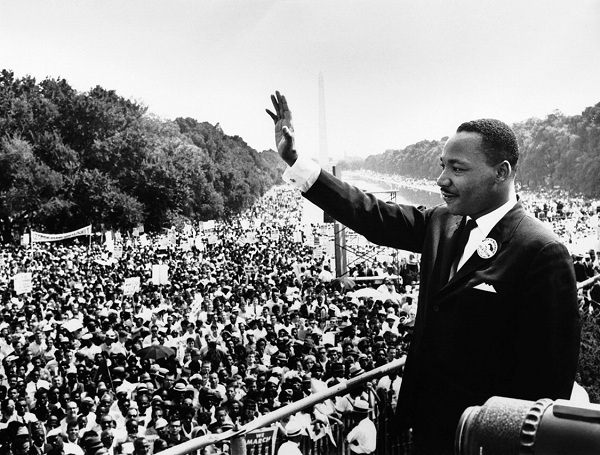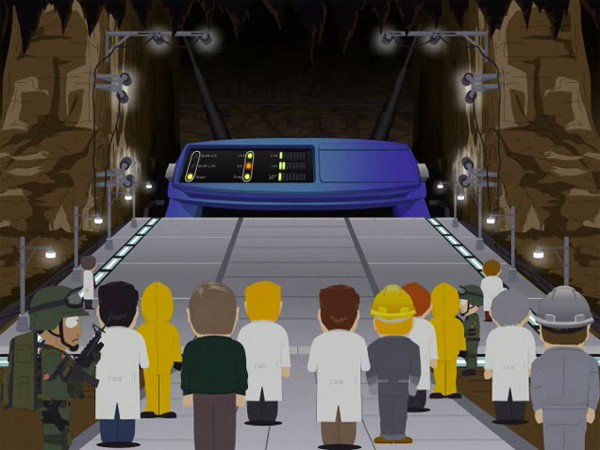Today, new developments in media and technology are almost always about making people’s lives easier and more fun.
Social networks let us stay in touch with our friends and family quickly and easily. Advancements in video games let us immerse ourselves in increasingly compelling worlds. And smartphones let us access information we need almost anywhere.
But changes in technology aren’t just about convenience or functionality. They often have an effect on how we relate to society and government.
Many developments in how books were made (much more than just Gutenberg’s printing press) allowed ‘the people’ to read rather than just people with religious power. TV allowed people to see images of war and violence for themselves instead of being only told stories of valor and bravery.
Now, like other new media before it, the web is changing how we relate to authority because it changes how information is spread. Here are four ways the internet helps us challenge ‘the man’.
1. Reaching A Mass Audience is Much Easier
Before the web, the dominant way of getting information out to people happened through a kind of broadcast mentality: a small number of people were entrusted with informing the public and they then ‘broadcast’ their message outward.
A lot of this had to do with economics. Jane Doe couldn’t just drive down to her local hardware shop and pick up a TV tower, a video camera and a large generator and start spreading the truth, right? Before, only large organizations with tons of capital could get a message out because it was an incredibly expensive proposition.
Now, as we all know, the web makes getting your message out much easier. I mean, this schmuck gets half a million views on YouTube a day. Because the costs for getting online and spreading ideas are so much lower, so many more people can do it.
Sure, there are downsides to this. But overall, it means that people who were once excluded from having their voice heard due to the expense of broadcast and print now have a platform to do so.
2. A Place For ‘Non-Mainstream’ Beliefs
This economic difference is more than just about the number of people the ordinary person can reach, though.
Because there are such massive sums of money involved with broadcast and print media, taking risks is, well… risky. Can you imagine presenting a piece on the upsides of socialist policy in the 1950s? Or an in-depth look at Islamic art in late 2001? Because the mainstream media is a numbers game, you have to play it safe and appeal to as many people as you can.
But because spreading information on the web doesn’t involve such huge financial risks, on the internet it’s much easier to speak about and discuss ideas that mainstream media can be uncomfortable talking about because you no longer have ‘shoot for the middle’.
Take, for example, Jezebel.com, a proudly feminist website that was set up by Gawker. It’s a site on which you will find smart feminist criticism of various kinds that you just don’t hear on TV or read in most newspapers. Oh, did I mention? It also gets about a million hits a day. Sure, some of those come from celebrity news and fashion pics, but the economics of the web also mean they can say things mainstream websites won’t and reach a sizable audience doing so.
3. It’s Hard To Shut Down The Web – But Easy For Folk To Gather
Another aspect of the web that helps challenge authority is that, while it’s easy to shut down a gathering of people in ‘meatspace’, it’s much harder to stop them on the web (unless, of course, that whole internet kill switch goes through). If people want to meet and discuss ideas online, they can often do in relative ease, often because being anonymous is much simpler online.
But moreover, because the web is itself a network without one thing at its center, it’s much easier for people who might have otherwise never found each other to collect and gather online around a shared belief or interest. You no longer have to live in the same city to organize people.
Even much-maligned Facebook is good at collecting people behind a cause, such as a series of protests aimed at getting Nestle to switch to a more environmentally friendly oil in their products.
In cases such as these, the web acts as a giant aggregator, collecting the opinions and voices of scattered people and putting them in one politically potent place.
4. Citizen Journalists Tell a New Story
During the G20 protests in London in 2009, a man named Ian Tomlinson died during the protests. The police initially claimed that they were trying to help the man. Later, a YouTube video showed the man being violently – and many say needlessly – shoved to the ground by an aggressive officer.
The point is that the capacity of the web to spread information quickly and cheaply – and that isn’t controlled by people who all share the same interests – means that new stories that otherwise would have been lost in the mainstream shuffle are now told, heard and spread.
It also means that far more often, people are presented with raw footage of an event and can make up their minds before clips and stories are edited to conform with a particular view. By empowering people to share their perspectives and views on events, the web allows new voices and stories to be told that aren’t simply a reflection of the status quo.
It Ain’t Perfect, But…
For all of the points above, there are also downsides. Pointless noise is everywhere. Criminals can organize online easily. Misinformation can spread like wildfire. Journalistic standards and ethics are often ignored. Moreover, read something like the daily Twitter trends and you’ll see that most people are still more concerned with pop culture and fun than they are activism.
But while it isn’t perfect, and we’re still learning how to deal with the downsides of the web, what’s clear is that the internet is a boon for freedom because it has started to break the link between power, money and having a voice.
Instead of speaking being the domain of those people with means, the web has allowed people of many more stripes have their say and challenge the message of those with power. And though we’re still muddling our way through it, that is something we should be truly grateful for.
Are there other ways that the web helps challenge authority? And what else needs to change so that the internet can become even more free and democratic?






LOL, Southpark is amazing dude.
Lou
http://www.anon-surfing.at.tc